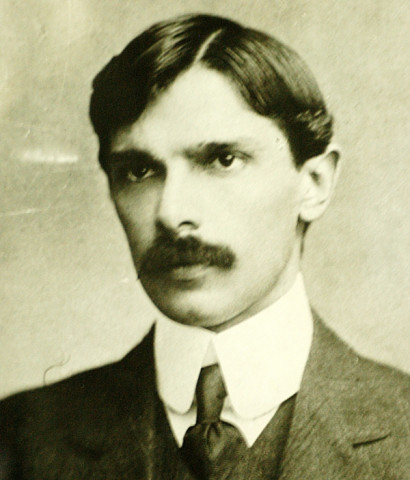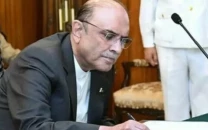Exploring Jinnah: the great leader and constitutional expert
Noted historian says the devolution of power to provinces wasn’t properly thought out.

Exploring Jinnah: the great leader and constitutional expert
From schools to colleges, Pakistani students are introduced to Muhammad Ali Jinnah as the founder of the nation and his message of unity, faith and discipline. However, they are rarely told about what he said to the Muslim youth during his address on discovering their leader in 1934.
This was said by noted historian Dr Ayesha Jalal while speaking to a gathering of students, ex-army officers, bureaucrats, academics and civil society members on Thursday evening. The event was held at Islamabad Club to mark the second anniversary of Jinnah Institute.
“Think well before selecting your leader and when you have selected him, follow him. But in case you find his policy detrimental to your interest, kick him out,” Jalal said while quoting Jinnah.
She went on to shed light on some of the aspects of Jinnah’s beliefs, his personality and his constitutional and political acumen that won a separate homeland for the Muslims of India.
During the course of her talk, she quoted Jinnah from his addresses at different occasions to different audiences.
“He was a great constitutional expert who won a country with his argument, countering all under hand deals and opposition from all sides,” said Jalal, adding that at one point Jinnah was opposed by everyone including Muslim leaders from Punjab, the Congress and the British.
“He was not invited to the third roundtable conference mainly for his independent point of view which he spoke out loud and clear,” she added.
Explaining Jinnah’s vision of a strong federation, Jalal said that the recent process of devolution of power to the provinces under the 18th amendment was not properly thought out before being implemented. Though she appreciated the idea of devolution, she insisted on the federation taking responsibility of certain tasks such as tax collection, education and health, which cannot simply be handed over to the provinces.
“You do not have the infrastructures in place. So it is like the federal government abandoning the responsibility of doing certain tasks and shifting the burden to the provinces which are not ready,” said the scholar.
She also noted that the division of provinces on the basis of governance will add more problems rather than solving existing ones. For instance, carving more provinces out of Punjab will only strengthen it in the Senate.
“Two Punjabs in the Senate will have more power, three will have even more, and I am sure Punjabis would love it when it comes to division of water,” she added.
Dr Ayesha Jalal is a professor of history at Tufts University, USA. She is also a director at the Centre for South Asian and Indian Ocean Studies.
Published in The Express Tribune, August 18th, 2012.



















COMMENTS
Comments are moderated and generally will be posted if they are on-topic and not abusive.
For more information, please see our Comments FAQ